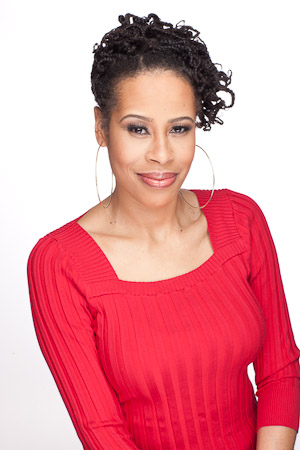Recently I went to see a play at an Off-Broadway theatre that I love, a production I found remarkably profound. I was in town for only a day, and redeye jetlag fatigue or not, I was going to the show if I could find an affordable ticket. What I didn’t predict was that the show would lead to a confrontation with microaggressions and white privilege. Turns out the social conflict wasn’t just happening on the stage.
I got to the box office and asked the staff if they had any discounts. The price that they offered wasn’t low enough for me to afford that evening. (My recent playwright award check hadn’t been received yet, okay?)
A couple of nice folks told me to stand off to the side while they figured something out. In the meantime, I talked with my friends. After a short while, an usher approached, accompanied by an older white woman in glasses. The usher said, “You’re looking for tickets, she has tickets. Maybe you can help each other.”
The woman, possibly in her early 60s, looked at me. We’ll call her Jane. I said: “I don’t have any cash, so I can’t really take those off your hands.”She handed me the tickets: “Well, just take them, ” she said. Then, as she walked away, she added, “Just don’t pop your gum, because I hate that.”
I wasn’t chewing any gum at the time.
When I finally registered the comment, she was already walking off with her husband. My friends and I quickly deliberated on what she meant by it. We were all black. This elderly white woman could be making a generational assumption, a racial assumption, or both. Whatever the case, she felt she needed to educate me on theatre etiquette. Why she assumed I wouldn’t already have theatre etiquette, I would love to know.
Later, I find out.
As the production began, we were suddenly transported into an interactive audience experience. I had developed a role in this play as an actress, so I knew the culture and tone that the play was setting. The lights were up on the audience to invite us into our own personal “church‐like” experience. And my own church experience is a buoyant one, so I began to laugh and nod my head as the play’s music began. I clapped as the onstage choir clapped.
Because I was sitting dead center, I was even recognized by the lead of the show, who started to use me as he gave his opening monologue; he made eye contact and gestured to me. In the middle of the play’s opening, as my friend and I laughed and enjoyed ourselves, Jane leaned in toward me and whispered, “Can you stop and keep it down?”
A moment.
First the gum-popping comment, and now this. Two things went through my head. The first was instant rage. The second was audacity. And that audacity caused me to respond to Jane in a whisper: “I will laugh whenever I think things are funny, so get used to it. You’re not going to tell me how I should respond to art.” Jane tried to chastise me further, but I simply put my hand up and said, “No more.”
Now I’d like to acknowledge Jane’s husband. He was a black man. And he was sitting between us the entire show. He was our silent witness, but did not engage. It was curious to me that he remained almost stoic throughout this lively show and throughout our exchange, but who knows what he was processing internally.
Now I know some readers will think: They were just a little socially inept, maybe even crazy. Write it off as a random moment of one crazy person and let’s keep moving. Let’s not indict theatre and the theatre community as a whole, or, even greater, all of society, for the actions of one rude woman. And of course it wasn’t about race, because her husband was black.

But we fail to understand the multiple layers of white privilege, elitism, and entitlement when we make such bland rebuttals. We fail to understand that this isn’t only one incident. This is part of an elitist and supremacist culture. But more on that in a minute.
When the show was over, I tried to engage Jane in conversation around the topic of entitlement in the theatre, but she wasn’t interested. I asked why she felt it necessary to police my reactions to the play. She said, “Just never mind.” When I informed her that I was an artist whose work also welcomed call and response from the audience, Jane responded with condescension: “Oh, sure. I just love artists like you. So riled up.”
Okay, it was time to walk away from Jane.
I went into the lobby and ran into other colleagues and friends who also happened to be black. These colleagues were professors, Broadway actors, producers. I explained to them the incident that had just happened and they were appalled. Suddenly, Jane approached us. “I’m the woman you’re talking about,” she said. She called the act she did for me “charity.” I told her I didn’t need her charity. A friend escorted her away and told her that she needed to leave us alone.
I was beyond enraged. In five more seconds, this was going to turn ugly. In five more seconds, Jane was going to provoke the touch of my butterscotch palm across her cheek. In five more seconds, the only thing that was going to come from this evening was the headline:
“Award-Winning Playwright Slaps Patron at Theatre.”
I actually thought of this not in hindsight, but in the middle of our argument. I am aware that no matter what provokes us, there is an unjust rule that says we—the person of color, the younger generation—are always wrong. We are taught that the provocation doesn’t matter, that we are supposed to accept abuses and harassment as a social norm, and that a rebuttal is somehow more socially disturbing than the initial offense.
Those thoughts stayed my hand.
And this wasn’t an isolated incident. Here’s a quick list:
- That time at a prestigious theatre festival when black women were responding exactly how I want them to respond to my play—loudly and expressively and “ummm hmm”-ing—and an older white patron approached them at intermission and said: “Can you enjoy the play a little quieter, please? ”
- That time my play was being performed at a Tony award-winning regional theatre and older white patrons saw me coming to my reserved seat (that they were sitting in), and refused to get up from that seat until an usher assured them that I was the playwright.
- That time my parents were coming to see my first Equity production at a beloved regional theatre, and again, older white patrons refused to believe that the seats they had taken were actually reserved for people that looked like my parents.
Why are all of these things important?
Because theatre has a white privilege and elitism problem. There is an environment that is fostering this kind of behavior. Our collective institutions—artistic staff, marketing departments, etc.—are placating the older white audiences, and are afraid to challenge them, or even educate them. We take their donor money and put them on boards, and we brush their microaggressions off as our old grandma or grandpa who might be a little racist and elitist but are otherwise harmless.
To that I ask: harmless to whom? I am telling you it is not harmless. It is harmful. It further marginalizes audiences of color and tells them they are not fully welcome in the theatre, except by permission of the white audience. It tells the upper-middle-class white audience that theatre is their home first and the rest of us are just guests.
In fact, when the theatre community buzzed recently about the all-white and all-male seasons announced by a number of NYC theatres, elder white audience members were the reasoning many colleagues offered in defense, saying that because they are the primary subscription holders for the theatre, we should not challenge their preferences. To this I always say: Who says that Grandma and Grandpa are done learning?
I have a grandmother who is 90 years old. She has a Facebook page. Sees plays. Listens to my husband’s hip-hop lyrics and tries to understand. I truly believe that keeping her challenged socially is what is keeping her alive.
If we want to keep theatre alive and keep our patrons, as well as attract new ones—old and young, white and “of color”—we can’t be afraid to push our older white patrons past their comfort levels and dismantle their supremacist and privileged worldviews, not just onstage, but in the culture of theatre that we are creating.
We need to say that, just like in church, you are welcome to come as you are in the theatre. Hoot and holler or sit quietly in reverence. Worship and engage however you do.
In writing this account, I wondered whether I should name the specific theatres of my experiences. I chose anonymity not to inspire a guessing game among my readers, but to avoid narrowing the issue. This isn’t a matter of one or two theatres. This is about us all. This elitist culture is a Frankenstein created collectively, and it will take collective action to shift to a model of inclusion.
Institutional leaders have to be the ones to set the tone for this kind of environment. We need to say it with our plays. With our programming. With the overall culture we set in the theatre. Or else we continue to foster a community of racial privilege and entitlement in the theatre, regardless of how many people of color there are onstage.
P.S. If you have witnessed or experienced any of your own versions of entitlement, elitism, privilege, bias, microaggression, racism, or other forms of prejudice as audience members and practitioners of theatre, please tweet and post about it using the hashtag #ppit (privilege problems in theatre). If we speak to it, perhaps we can actually address and dismantle it. And if you aren’t on board, please no #HashtagHijacking.
Dominique Morisseau is a writer and actress. Her playwriting credits include Detroit ’67 and Sunset Baby. Her newest play, Skeleton Crew, runs January 6–Feb. 14 at Atlantic Theater Company. She is the recipient of the 2015 Steinberg Award.


